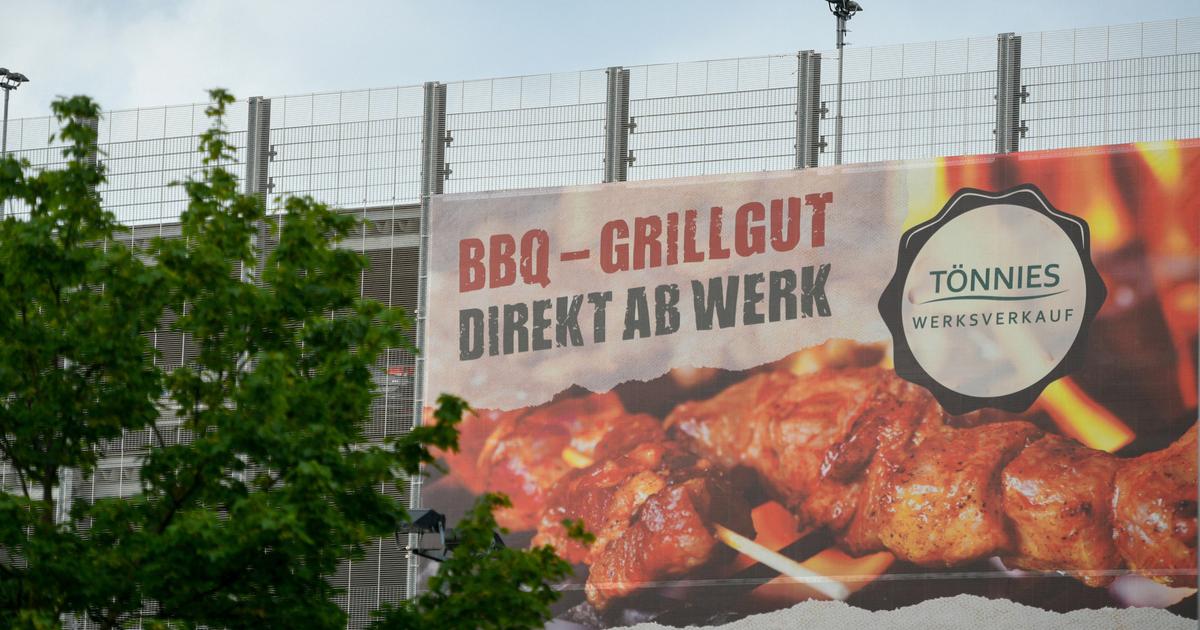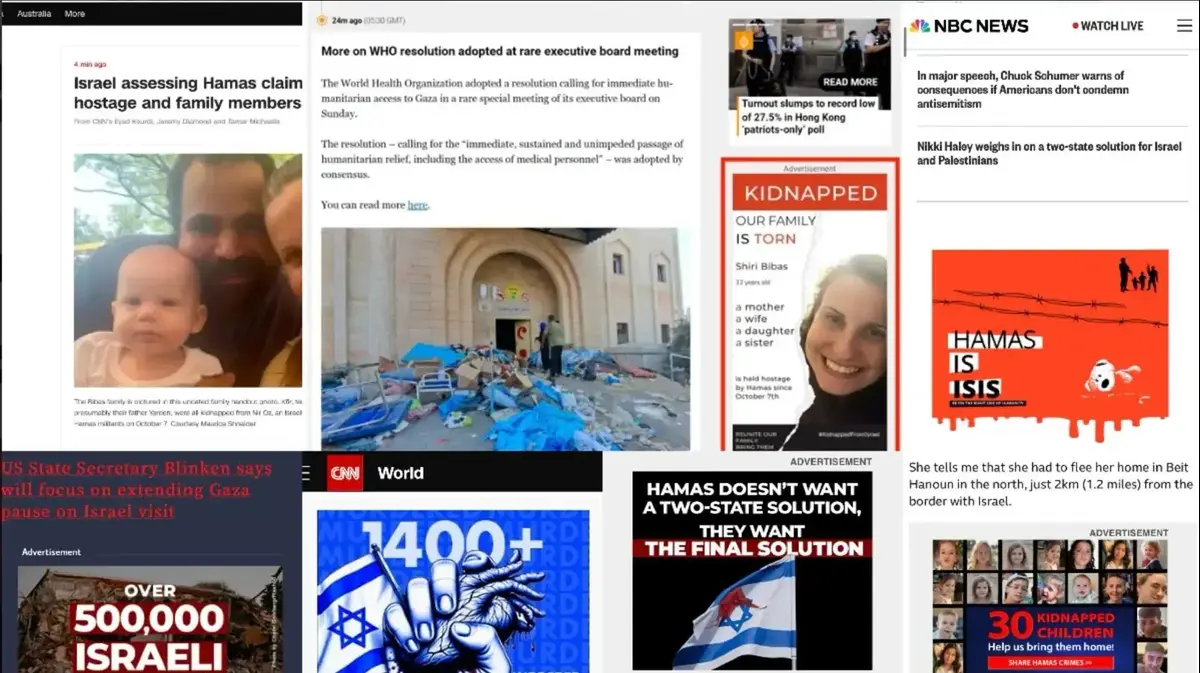A former student of the École Normale Supérieure on rue d'Ulm and chief of staff to the mayor of Sens, Adrien Dubrasquet is now consulting director at the influence communication agency
Comfluence
.
He published
Le véganisme, une ideologie du XXIe siècle (Editions de l'Aube, March 2022).
LE FIGARO. - From 2024, it will be impossible to find a meat advertisement in public spaces in the city of Haarlem, west of Amsterdam, in the Netherlands. The measure, carried by the environmentalist party GroenLinks, was motivated by the environmental consequences of the production and consumption of meat products. How do you view this measure?
Adrian Dubrasquet. -
This is a perfect illustration of the toothpaste tube theory.
This is a theory developed by Peter Singer, the author of
Animal Liberation
and considered the father of antispeciesism, in an eponymous book.
The principle is simple: in the same way that you gradually empty a tube of toothpaste by small pressures, without being able to get the toothpaste back inside the tube, you can advance a cause by garnering a succession of small victories apparently ridiculous, but which have a real ratchet effect.
It is a method of activism which consists in favoring small fights that are a priori unimportant and which will be easier to win, rather than tackling head-on a fight that we know will be lost in advance because the relationship of strength is unequal.
Here, it is easier to ban advertising for meat in the public space, rather than to attack the meat industry head-on or to want to regulate the diet of Dutch people.
Each of these small victories advances the cause, the "problem" enters the public debate through the back door, and gradually gains in legitimacy.
The mechanics are broken.
The speech adopts a willingly moderate turn: we want to ban advertising for meat and at the same time we proclaim loud and clear that we are not trying to ban the consumption of meat;
we will argue to the most skeptical that meat professionals have many other ways of advertising their products than in the public space, and above all that this decision will not come into force until 2024, in order to allow time to adapt.
We know that this ban will not have a great impact: it will not destabilize the Dutch meat industry, it will not accelerate the ecological transition.
It is nonetheless a symbolic victory.
By dint of patience, wedges are inserted into a block of wood until it bursts.
The public space advertising ban also applies to air travel, the fossil fuel industry and gasoline-powered cars. Should this be seen as an intrusion of politics into the private lives of citizens?
There are two ways to read this political decision.
We can indeed see through these prohibitions an extension of the political, which would frame and regulate more strongly certain speeches in the public space.
There has always been regulation of advertising by the public authorities, in the name of good morals, in the name of public order.
The novelty here is that this regulation now concerns subjects on which there is no consensus, quite the contrary even, since they are the source of new and increasingly marked political divisions.
From this perspective, we can say that the political goes beyond the role that has traditionally been assigned to it in our liberal societies.
Conversely, this decision can also be read as an additional indication of political abandonment.
Market forces are so powerful that the only levers of political action relate to a relatively trivial aspect, namely advertising in the public space... In other words, the public authorities recognize their relative impotence in supporting the transition environmental: the ball is in the court of the industrial giants.
Politics no longer has sufficient coercive power to drive the necessary change.
In the name of the ecological emergency, in order to raise awareness and accelerate the environmental transition, some are ready to deprive actors who play a major role in the emission of greenhouse gases of their right to speak.
Adrian Dubrasquet
These two readings are not contradictory.
Politics, for lack of sufficient capacity for action to stem market forces, concentrates its action on anecdotal elements, at the risk of damaging itself and losing credibility.
For its part, the opposition within the city council of the city and the meat industry see it as a restriction of freedom of expression. Do you share this observation?
In the name of the ecological emergency, in order to raise awareness and accelerate the environmental transition, all laudable objectives, some are ready to deprive the right to speak of the actors who play a major role in the emission of gas greenhouse effects.
And this, while they are the most able to permanently reverse the trend by changing their practices.
Such a provision restricts the right to freedom of expression, but above all it infringes the freedom of enterprise.
To make such a provision is to deny the right to these economic sectors to be able to be actors in the environmental transition;
it means admitting, in advance, that they can never be the pillars of the sustainable economy that everyone is calling for.
Funny conception of progress!
It is all the more regrettable that a sector such as the meat sector, to take just this example, has undertaken major work aimed at transforming its practices in a sustainable and responsible manner.
Since 2017, the French livestock and meat trade association, Interbev, has laid the foundations of its social responsibility and identified room for improvement.
With this Societal Pact, the sector is committed to concrete objectives for reducing its ecological footprint and is changing its discourse in depth, to the point of advocating flexitarianism.
All these sectors considered polluting are resolutely committed to the environmental transition, because their very survival is at stake.
It will take time, but important milestones have been set, a dynamic has been set in motion and the first results have been recorded.
It is clear that the climate emergency is only a pretext and that the ecological transition is not the final objective which is pursued: these activists simply want to eradicate whole sections of our economy.
They don't want to save society, they want to rebuild it on new foundations.
And ecology is their Trojan horse.
Beyond this news, should we restrict some of our freedoms in the name of ecological emergency, as demanded by activists?
Western democracies are faced with a double challenge, that of making a success of the environmental transition, and that of preserving their democratic DNA.
Another commitment of the public service media: to accelerate the transition towards more responsible advertising by aiming for the progressive exclusion of the most polluting products and services.
Adrian Dubrasquet
I have few concerns about the fact that we will succeed in overcoming the environmental challenge: all public policies, at all levels, are conducted through the prism of environmental transition;
the vast majority of citizens have become aware of what is at stake and of the need to change our behaviour;
and we have significant technological resources.
We can regret that things are not going fast enough, we can deplore certain strategic errors, such as the temporary abandonment of nuclear power which caused us to lose precious years, but the fold is taken: it is a question of continuing and not not relax the effort.
I have faith in our collective intelligence and our technical abilities.
On the other hand, I am more worried about our ability to overcome this challenge without denying our fundamental democratic principles.
As we can see, the most militant fringes are ready to keep some of our fellow citizens out of public debate, on the pretext that they do not think properly or are not ready to endure a certain number of sacrifices that they consider indispensable.
It is not because there is no debate around the climate emergency that there should not be on the means that are implemented to achieve it!
The whole challenge of the coming years for our societies will be to succeed in holding both ends of the chain, saving the planet without losing our democratic soul.
An example to take the measure of the challenge.
Recently Radio France announced that it was embarking on its
“environmental shift”
.
Concretely, the climate crisis will become a major editorial axis for all Radio France branches: in other words, this subject will structure all programming.
Another commitment of the public service media: to accelerate the transition towards more responsible advertising by aiming for the progressive exclusion of the most polluting products and services: it is planned to increase by 15% per year the volume of advertising devoted to products, services and responsible companies.
Radio France is committed to a crest line: we will have to succeed in reconciling, throughout, a courageous and committed editorial line with respect for pluralism, concern for the contradictory and the dissemination of objective information.
The
challenge
is great and the risks are great: we know that hell is paved with good intentions...









